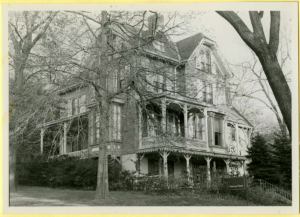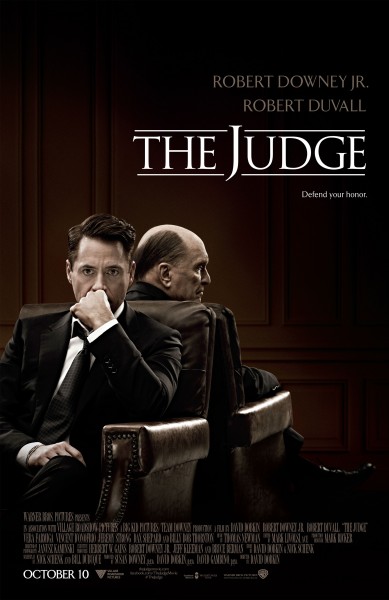Small towns seem to be the theme for this year’s film releases in the box office. Typically, the main character comes back to a life they wish to forget because there’s a problem at home that he or she chooses to forget by remembering all the problems they have at home, only to realize that they aren’t solving anything by running away from the past. It gives the impression that filmmakers want to have the audience remember where their roots are, even if the memories are too painful for them to bring up.
Hank Palmer, a successful lawyer of Chicago–and therefore one of the most despised men in the game, gets pulled back into his hometown because of the death of his mother. All of his problems that he drove away from one fateful night, 20 years ago, come crashing on him like a beat-up pick up truck. Including his father, Judge Joseph Palmer.
His old life and his old room make Hank regret what good memories he has with his father. After one more argument and insult, Hank finds himself on the plane back home when he gets a call from his oldest brother. His father, a judge for 42 years, is being tried for murder of the first degree.
Swallowing what little pride he has left, Hank returns to the rolling corn fields of his childhood to watch as his father gets bullied by the law for a crime he doesn’t remember committing. Hank, a charismatic lawyer of the Windy City, willingly goes down the dismal road of memory lane to be on the trial of his life.
Robert Duvall (best known for his work in classical movies such as The Godfather, The Godfather II, Apocalypse Now, and Deep Impact) portrays the character Judge Joseph Palmer, who reins his house and his boys just like his courtroom.
His sons (portrayed by Robert Downey, Jr., Vincent D’Onofrio, and Jeremy Strong) all had different views of how the house should run. Rules are what run the country; rules are what ran the house during Hank’s childhood.
While watching the film, I was waiting to see which character would tell the other the giant, “I’m sorry”–the apology that the audience waits for in the conclusion.
Who gets the most sympathy from the audience? The law bound judge, the mentally challenged younger brother, the delinquent turned lawyer, or the brother with the stolen dream? Family issues arise, as the past never seems to be forgotten when unwanted, while the truth remains a distant memory. When the plot slowly begins to unravel and the questions are soon answered, I noticed the impeccable similarities between Hank Palmer and Joseph Palmer. It is ironic that Hank became the man from which he tried to run away.
Rating: 4/5







